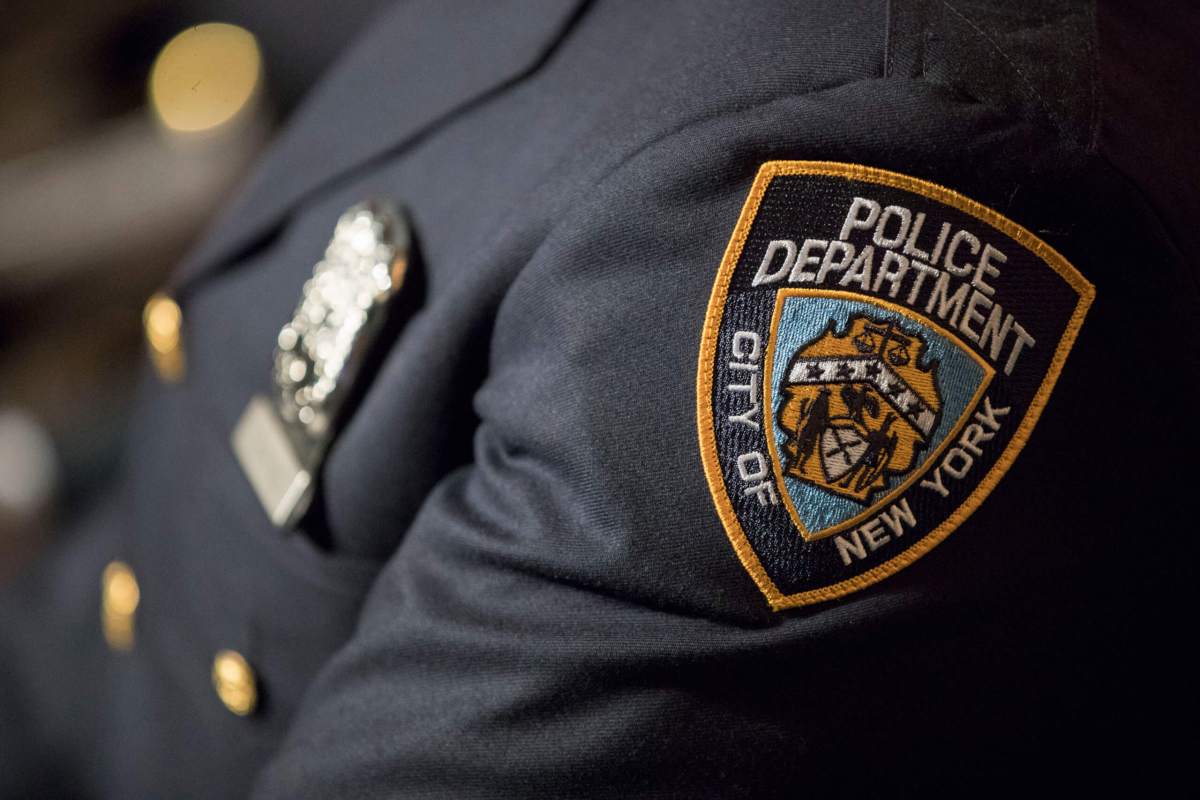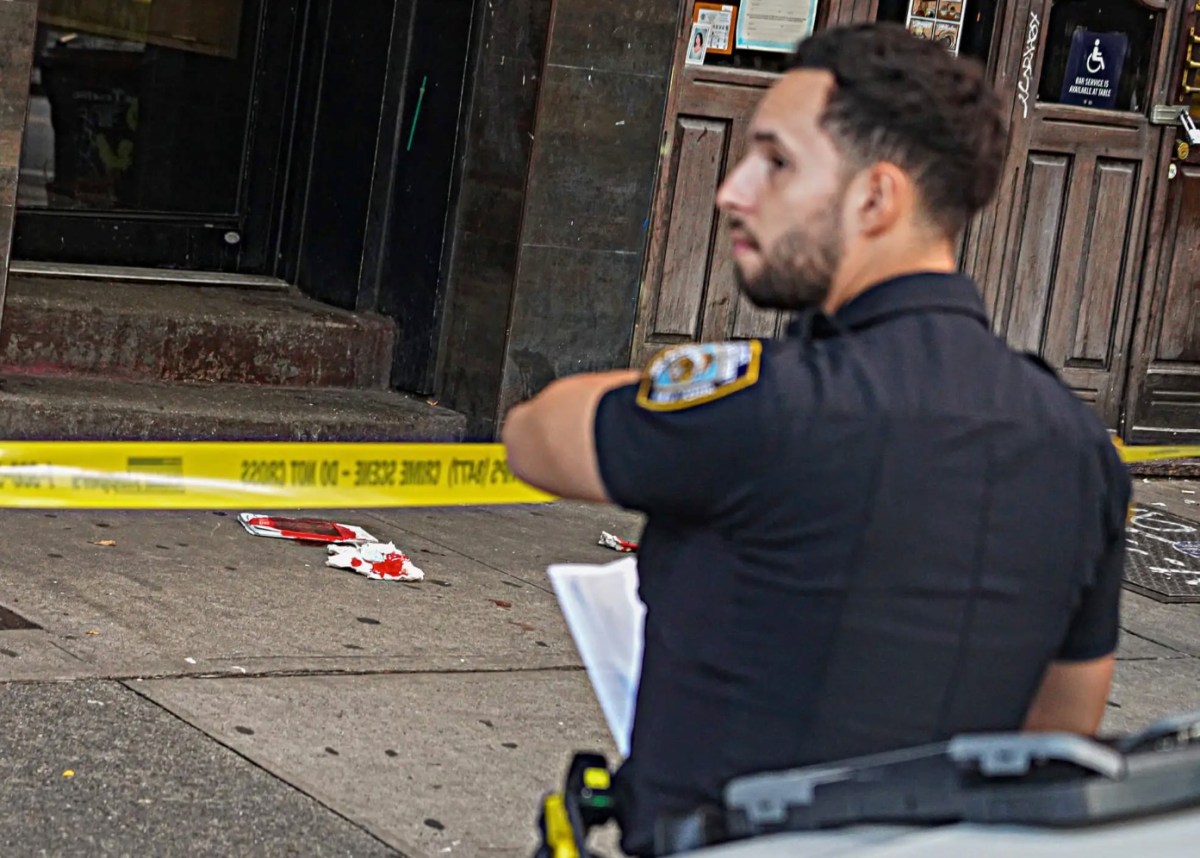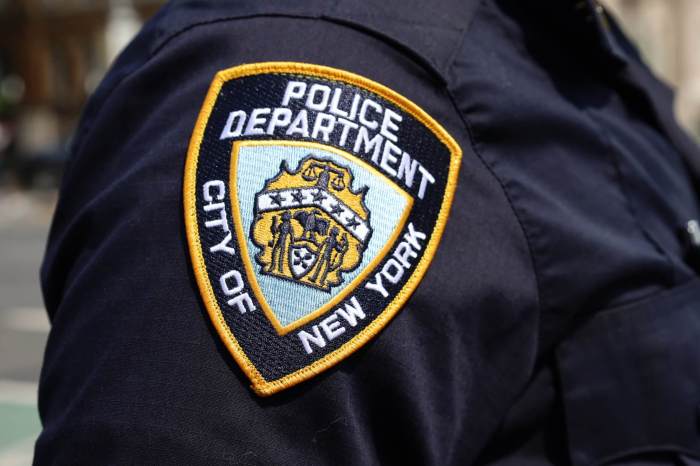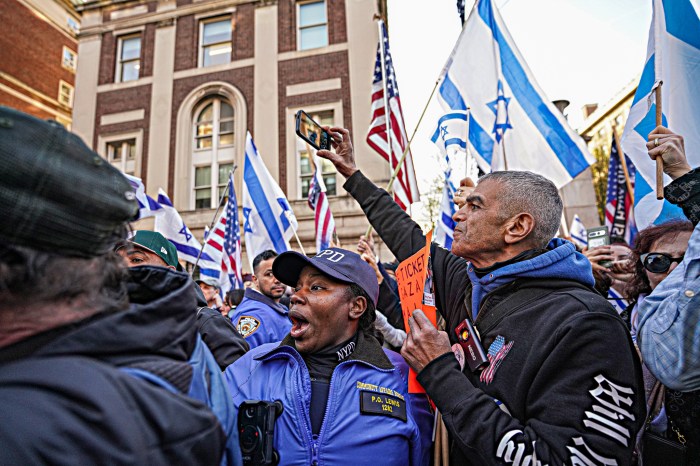On Tuesday at 11 a.m., a rookie police officer attempted suicide inside a station house locker room in the Bronx’s 47th Precinct in the Edenwald section. The 22-year-old cop, who joined the department in December 2021 — suffered a gunshot through the cheek, according to sources — was rushed to Jacobi Hospital where he’s expected to survive his injuries.
But Tuesday’s incident is just one in a disturbing trend in law enforcement where the rate of suicides among police officers is surpassing the rate of officers who die in the line of the duty.
So far this year, two NYPD officers — a reassigned cop who jumped to his death in Elmhurst on Jan. 10 and a cop who died due to a self-inflicted gunshot wound in a car in Queens on Jan. 20 — have died by suicide. New York state ranks among the top three states in the nation in regards to law enforcement suicides.
While the NYPD was mum on the next steps in the rookie cop’s recovery and subsequent mental health outreach for the precinct’s other officers, the incident weighed heavy on a few Bronx police officers who spoke with the Bronx Times on Tuesday.
One officer from the 46th Precinct who requested anonymity, said that the “weight of the badge” and the high exposure to violence and death takes a toll on any uniformed first responder. That officer said he briefly considered suicide in 2021 after responding to a gruesome murder scene that summer.
“You spent your entire life training to be this police officer who saves lives, but then you feel like a failure when you fall short on one case, or you see the family of a parent who trusted you for answers is still grieving,” said the officer, who has been with the NYPD for roughly four years. “It’s painful. It’s mentally defeating, and a lot of (officers) suffer in silence.”
Silence and stigma have historically played a role in law enforcement employees seeking mental health treatment.
A 2018 survey by the Fraternal Order of Police asked nearly 8,000 officers about wellness issues and found that stigma over mental health was a significant barrier to seeking treatment. Nearly 17% of the officers reported they had thoughts of suicide.
Since 2016, Blue H.E.L.P., an organization that aims to destigmatize mental health and suicide in law enforcement, has compiled a running list of first responders lost to suicide and estimates that 170-175 police officers commit suicide per year. So far, 15 police officers across the U.S., according to H.E.L.P.’s tracker, have taken their lives in 2023.
Internally, the NYPD has three mental health hotlines for its employees: an employee assistance line, a chaplain’s unit for faith-based services and the Police Organization Providing Peer Assistance, an independent, volunteer-based unit that offers support to uniformed members and retirees.
Some officers told the Bronx Times they have used the hotlines after particularly traumatic days, but others said they don’t feel comfortable confiding those concerns within, or to, department resources.
But gathering data on law enforcement suicides is difficult, as only two states — New Jersey and Ohio — have those numbers tracked yearly by nonprofit organizations. Congress attempted to address the lack of data with passage of the Law Enforcement Suicide Data Collection Act, which began collecting national statistics on officer suicides last year from departments on a voluntary basis.
When Blue H.E.L.P. compared their numbers against those of New Jersey and Ohio, they found that they were 26% percent below what those states had reported.
“So we believe we’re too low (on total number of police suicides),” said Karen Solomon, one of the founders of Blue H.E.L.P.’s website and the wife of a police officer. “There’s been a lot of measures taken to increase mental health access within departments and measures to track suicides and attempts that we hope increase the amount of reports — because I don’t know how widely known these databases are for some agencies.”
A major shift in mental health conversations and approach for law enforcement is the recognition of the officers and families impacted by suicide, and ensuring those families are taken care of in the aftermath.
The advocacy effort by widower Erin Smith — whose husband, D.C. Metropolitan Police Officer Jeffrey Smith, died by suicide days after being assaulted during the Jan. 6 insurrection on the U.S. Capitol — led to Congress passing a bill recognizing trauma-based death and suicides as line-of-duty death.
Before 2022, the Public Safety Officers’ Benefits Program previously covered claims related to PTSD or suicide, and families may have been dissuaded from seeking benefits in such cases. In August, President Joe Biden expanded death and disability benefits under the program to include first responders who die by suicide or are disabled by traumatic experiences.
Solomon, one of the founders of Blue H.E.L.P’s website, said that oftentimes her office will field calls regarding suicides and attempts from the nation’s largest police departments in New York City, Chicago and Los Angeles, but says more needs to be done to highlight barriers and struggles for law enforcement officers in more rural municipalities.
“Because we have somebody dying every three or four days by suicide, it shouldn’t just make the news when it happens to one of the bigger agencies like the NYPD,” said Solomon. “It’s about awareness, it’s not just the big agencies or department, it’s about first responders and their family and getting the word out about mental health and the resources to better help them.”
Reach Robbie Sequeira at rsequeira@schnepsmedia.com or (718) 260-4599. For more coverage, follow us on Twitter, Facebook and Instagram @bronxtimes






















